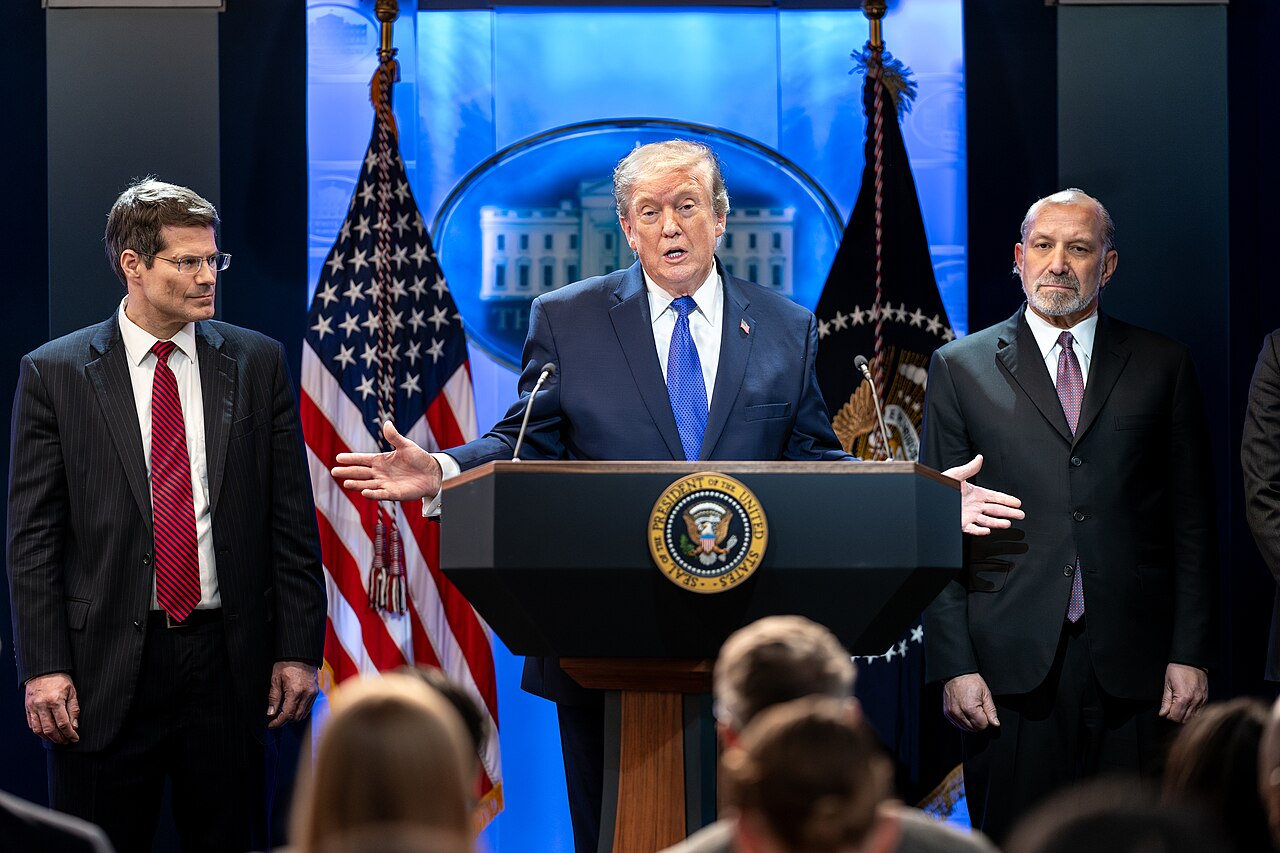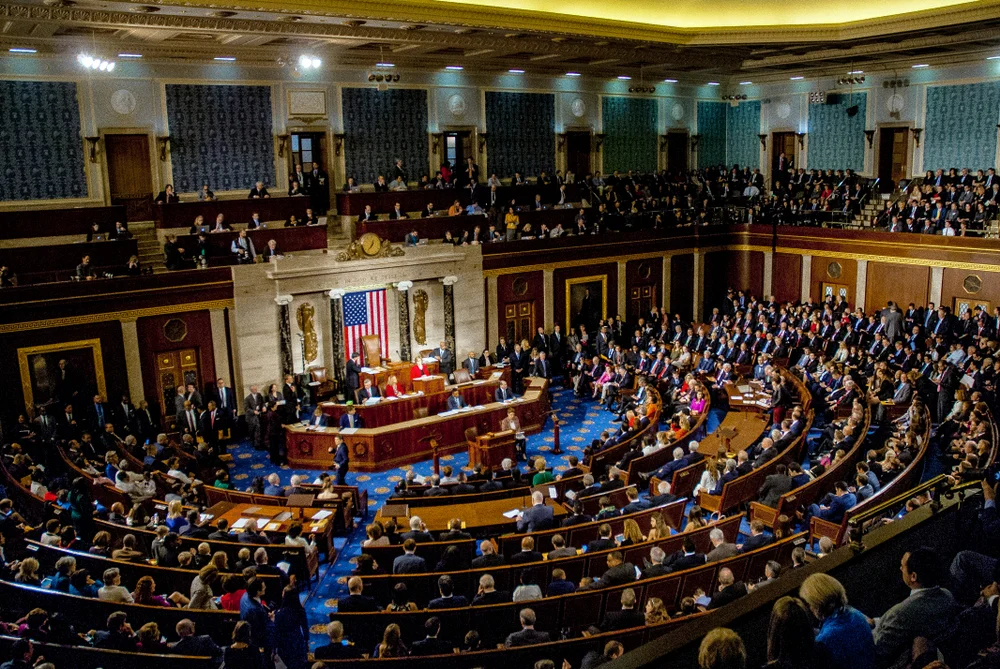.avif)
Chemerinsky's Constitutional Wishlist
Chemerinsky's No Democracy Lasts Forever is a microcosm of the legal academy and the deformed fruit it bears.
Small problems pockmark Erwin Chemerinsky’s manifesto calling for constitutional revolution in America. The Berkeley Law School Dean’s No Democracy Lasts Forever contains puzzling errors, like the assertion that “to save American democracy…the Supreme Court could declare the Electoral College unconstitutional as violating the Fifth Amendment’s assurance of equal protection.” (It can’t, not least because the Fifth Amendment assures no such thing.) It features several omissions, including any discussion of state government’s role in our constitutional order and the Constitution’s guarantee of a republican form of government in the states. At times, it accidentally self-condemns: while calling for replacing our national charter, Chemerinsky writes that “the arrogance” of the Framers’ decision to replace the previous national charter, the Articles of Confederation, “is obvious.”
It even fudges some of its most important arguments, including one about the Constitution’s enduring responsibility for racial inequality. Though the parts of the Constitution that allowed slavery to persist have been amended out of existence, Chemerinsky nevertheless concludes that the Constitution’s current structure widens race-based disparities. But he does not connect the dots. What extant Constitutional defect makes it responsible for today’s social ills such that we need a replacement? Chemerinsky neither shows nor tells; he counts on the reader’s vague sense that a Constitution slaveholders in part wrote must still have some baked-in, race-related injustices.
But those blemishes pale compared to the flaw that makes it hard to take No Democracy Lasts Forever seriously. The book offers a deep dive into the laundry list of progressive constitutional reforms, which together amount to an overhaul, taking aim at aspects of our Supreme Law that “threaten democracy,” usually by being insufficiently democratic. Chemerinsky reiterates many well-worn criticisms of the Electoral College, the Senate, and the Supreme Court, which he wishes would feature or protect direct and proportional representation.
He thinks he has thereby proved that the Constitution is inadequate to meet the modern era’s challenges, and, in some cases, is responsible for causing or exacerbating those challenges thanks to its very structure. We should toss this Constitution in favor of something more democratic. The new Constitution should also be better equipped to protect against creeping “right-wing authoritarianism,” a threat that appears and vanishes in the blink of an eye and whose connection to the anti-democratic Constitution is unclear.
Here’s the big problem: Chemerinsky declares that democracy is our paramount value without explaining why—or even what he means by democracy. Sometimes he uses democracy to mean its literal definition of rule by the people, or majority rule. Sometimes he means effective functioning of government and elections, as in his chapter arguing that gerrymandering and misinformation “threaten democracy.” His core argument cannot hang together without a definition or at least consistent use of that key term. It falls apart on the recognition that he simply assumes democracy is the singular value against which we measure a nation’s success.
This question-begging is evident if you simply read the book’s subtitle, which the book repeats throughout: How the Constitution Threatens the United States of America. (No direct explanation of the peculiar italics is forthcoming, but Chemerinsky implies that continued adherence to the Constitution as written will lead to secession.) This makes no sense. The Constitution cannot “threaten” the United States any more than our brains can “threaten” our consciousness. It is what makes us the United States; it constitutes us as a nation. To the extent Chemerinsky has proved anything, what it threatens is an ongoing project to subordinate all competing considerations to majoritarianism.
Assuming that democracy, rather than some combination of majoritarianism, liberalism, social peace, and the rule of law, is what we are pursuing as a nation, Chemerinsky flippantly condemns the Constitution rather than trying to help readers understand it. He only examines its institutional ingenuity to highlight each institution’s downsides, eschewing full analysis—which would take seriously the benefits of insulating institutions from pure majoritarianism—in favor of purity testing. If a constitutional institution does not do the will of the majority, it is tainted, “illegitimate,” even in the author’s wince-inducing estimation.
Chemerinsky readily admits that Constitution’s Framers had their doubts about democracy. With good reason, one might add. Democracy is not an unvarnished good. Rule by bare majority can quickly turn into mob rule and tyrannize bare minorities, as the Federalist emphasizes. Chemerinsky even acknowledges this principle when he defends broad free-speech rights, which protect unpopular expression from punishment at the hands of a disapproving majority. The challenge is to try to get democracy’s best parts while avoiding its pitfalls, which is why the rule of law and substantive liberal commitments must counterbalance and occasionally temper majority rule, with semi-democratic institutions like the Senate.
Yet Chemerinsky flippantly writes off those doubts as the elitist snobbery of “fifty-five white men.” He knows that our constitutional design, especially regarding the combination of democratic, non-democratic, and counter-democratic institutions, was not an oversight but a set of considered judgments and compromises. But instead of analyzing and critiquing the Framers and their philosophy of government on their own terms, Chemerinsky holds up their ambivalence about majoritarianism as proof that they did not have the right considerations in mind. The Constitution, and the republic it established, have thereby suffered ever since the Framers launched it in the wrong—that is, insufficiently democratic—direction.
Now, Chemerinsky posits, the Constitution’s weaknesses are more evident and destructive than ever. But what has changed? How can the Constitution pose a growing threat to democracy when the Constitution has remained structurally stable for at least the last century? Chemerinsky’s answer is that our sociopolitical reality has changed, and now the Constitution must change to meet it. The Senate is a prime target:
The anti-democratic nature of the Senate, with two senators for every state regardless of population, always should have been deeply troubling, but the shifts in population make it ever more disturbing, and the changes in the filibuster rules exacerbate the Senate’s undemocratic nature.
Those population shifts refer to Democratic voters clustering in large cities while Republicans spread out. Republicans thus benefit from the Senate systematically overrepresenting them. Thanks to the filibuster, even when Democrats enjoy slim majorities, they cannot pass the laws they want because the Senate now operates by effective super-majority rule.
A definition of democracy would be really useful here. In one version of democracy, when the rules and reality combine to create an electorally disadvantageous scenario for one party, that party would play by the rules and adjust its messaging and policies to appeal to more people. That is how you get more compromise, more people who get what they want, and fewer people with minority views being steamrolled by a majority that writes them off as irrelevant.
Another version of democracy might be Chemerinsky’s: if the rules and reality combine to disadvantage one party, find a way to change the rules. That doesn’t seem very democratic, though. It seems like elites rigging the game in their own team’s favor and for the policies that they think would be wise. Nonetheless, in democracy’s name, Chemerinsky advocates reforms that would remove the need to appeal to more Americans (and different kinds of Americans) and allow narrower majorities to dominate minorities.
The ruse is exposed further when Chemerinsky gets to the true test of principle: the abortion issue. Did the Dobbs decision, which overturned Roe v. Wade and returned the abortion issue to democracy’s center stage—state legislatures—advance democracy or hinder it? To a true democracy purist, the answer is obvious. Disagree with the Court’s reasoning on any number of grounds, if you wish, but removing the abortion issue from judicial supervision and returning it to states is not anti-democratic. Chemerinsky fails the test. Dobbs threatens democracy, he writes, because “a CNN poll showed that almost two-thirds of Americans disagreed with the Court’s decision,” which “heightens the sense that the Court has become ever more anti-democratic.”
Let this put any doubt to rest: the operative principle here is achieving outcomes Chemerinsky likes. His discussions about changing the rules are only tendentiously related to any concern for high principle or the public welfare. They are overwhelmingly about fulfilling his progressive wishlist by a constitutional Santa Claus.
That is a derisive way of describing Chemerinsky’s project, but one chosen advisedly. He is engaged in magical, wishful, unrealistic thinking. None of this book’s ideas relate to live debates about constitutional interpretation or governmental reforms. They are academic in the purest sense.
This book is indeed a microcosm of the legal academy and the deformed fruit it bears. One hopes Chemerinsky might have second thoughts about fueling revolutionary fervor after it reached his doorstep a few months ago. Law schools, especially the one Chemerinsky leads, spend enormous time and money ginning up radical theories and occasional revolution-LARPing. That is how you ended up with Berkeley Law students posting literal blood libels about Chemerinsky, their Jewish dean, trespassing on his property to rail against his support for Israel while insisting over his pleas for quiet that they had a First Amendment right to do so, and then accusing Chemerinsky’s wife of assaulting them when she tried to take their microphone away. They had things backward morally, legally, and intellectually. But they were so well-trained to focus on revolutionary nonsense and regard it as self-justifying that they continued spouting off, blissfully ignorant of their ignorance and how they appeared to those beyond their tribe. Berkeley failed to discipline any of them. With leadership like that, is it any wonder our nation’s top law schools are full of incurious (and anti-American) ideologues?
Maybe instead of indulging in progressive fever dreams, we should spend more time on real education, legal or otherwise, and constructive reforms. Chemerinsky could start by disavowing this silly book and focusing on proposals most Americans could take seriously. That’s what we do in a democracy.
Tal Fortgang is an adjunct fellow at the Manhattan Institute
Constitutionalism

Amicus Brief: Hon. William P. Barr and Hon. Michael B. Mukasey in Support of Petitioners
Former AGs Barr and Mukasey Cite Civitas in a SCOTUS Brief

Rational Judicial Review: Constitutions as Power-sharing Agreements, Secession, and the Problem of Dred Scott
Judicial review and originalism serve as valuable commitment mechanisms to enforce future compliance with a political bargain.

Supreme Court showdown exposes shaky case against birthright citizenship
Supreme Court will hear challenges to Trump's order ending birthright citizenship, testing the 14th Amendment's guarantee for babies born in America.

Trump’s Tariff Tantrum
Trump leaps from the frying pan into the fire in the aftermath of Learning Resources v. Trump.

The Administrative State’s Sludge
Congress has delegated so much power across so many statutes that it’s hard to find a question of any public importance to which some agency cannot point to policymaking authority.


.avif)










.avif)
.webp)


